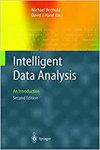Knowledge graph embedding in a uniform space
IF 0.8
4区 计算机科学
Q4 COMPUTER SCIENCE, ARTIFICIAL INTELLIGENCE
引用次数: 0
Abstract
Knowledge graph embedding (KGE) is typically used for link prediction to automatically predict missing links in knowledge graphs. Current KGE models are mainly based on complicated mathematical associations, which are highly expressive but ignore the uniformity behind the classical bilinear translational model TransE, a model that embeds all entities of knowledge graphs in a uniform space, enabling accurate embeddings. This study analyses the uniformity of TransE and proposes a novel KGE model called ConvUs that follows uniformity with expressiveness. Based on the convolution neural network (CNN), ConvUs proposes constraints on convolution filter values and employs a multi-layer, multi-scale CNN architecture with a non-parametric L2 norm-based scoring function for the calculation of triple scores. This addresses potential uniformity-related issues in existing CNN-based KGE models, allowing ConvUs to maintain a uniform embedding space while benefiting from the powerful expressiveness of CNNs. Furthermore, circular convolution is applied to alleviate the potential orderliness contradictions, making ConvUs more suitable for conducting uniform space KGE. Our model outperformed the base model ConvKB and several baselines on the link prediction benchmark WN18RR and FB15k-237, demonstrating strong applicability and generalization and indicating that the uniformity of embedding space with high expressiveness enables more efficient knowledge graph embeddings.统一空间中的知识图谱嵌入
知识图谱嵌入(KGE)通常用于链接预测,以自动预测知识图谱中的缺失链接。目前的知识图谱嵌入模型主要基于复杂的数学关联,具有很强的表现力,但却忽略了经典双线性平移模型 TransE 背后的统一性。本研究分析了 TransE 的统一性,并提出了一种名为 ConvUs 的新型知识图谱模型,该模型在统一性的基础上兼顾了表现力。ConvUs 以卷积神经网络(CNN)为基础,提出了对卷积滤波器值的限制,并采用了多层、多尺度 CNN 架构和基于 L2 规范的非参数评分函数来计算三重分数。这解决了现有基于 CNN 的 KGE 模型中潜在的统一性相关问题,使 ConvUs 能够保持统一的嵌入空间,同时受益于 CNN 强大的表现力。此外,循环卷积的应用缓解了潜在的有序性矛盾,使 ConvUs 更适合进行统一空间 KGE。我们的模型在链接预测基准 WN18RR 和 FB15k-237 上的表现优于基础模型 ConvKB 和几个基线模型,证明了其强大的适用性和普适性,并表明具有高表现力的统一嵌入空间可以实现更高效的知识图嵌入。
本文章由计算机程序翻译,如有差异,请以英文原文为准。
求助全文
约1分钟内获得全文
求助全文
来源期刊

Intelligent Data Analysis
工程技术-计算机:人工智能
CiteScore
2.20
自引率
5.90%
发文量
85
审稿时长
3.3 months
期刊介绍:
Intelligent Data Analysis provides a forum for the examination of issues related to the research and applications of Artificial Intelligence techniques in data analysis across a variety of disciplines. These techniques include (but are not limited to): all areas of data visualization, data pre-processing (fusion, editing, transformation, filtering, sampling), data engineering, database mining techniques, tools and applications, use of domain knowledge in data analysis, big data applications, evolutionary algorithms, machine learning, neural nets, fuzzy logic, statistical pattern recognition, knowledge filtering, and post-processing. In particular, papers are preferred that discuss development of new AI related data analysis architectures, methodologies, and techniques and their applications to various domains.
 求助内容:
求助内容: 应助结果提醒方式:
应助结果提醒方式:


